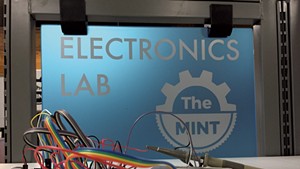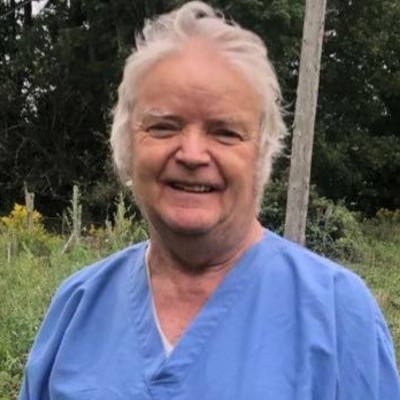Emir Heco of Essex and Jim Schenck of Passumpsic are trying to do the same thing: promote economic development by creating spaces designed to boost entrepreneurship. But they're going about it in slightly different ways.
A year and half ago, Heco bought a former retail shop near Five Corners in Essex Junction and founded a coworking space called Excelerate Essex, aka e². Like most such spaces, it's designed to attract small startups, independent contractors and remote workers. In this case, Heco points out that it appeals to young professionals who've moved to the area to start a family but telecommute to their jobs in larger cities. E² members pay a monthly fee that ranges from $75 for a shared desk to $450 for a private office. All share communal conference rooms and office amenities such as a Wi-Fi network.
Heco, 31, lives in Essex with his wife and two children. His own startup, a product design and development firm called Heco Engineering, is located a few miles away. Heco says e² has been purposefully seeking members with a variety of skills so that local entrepreneurs like him can find the resources they need to run their businesses. He often contracts with the professionals based at the coworking space — many of them are software engineers and developers. Having them nearby means "we don't have to go searching regionally and nationally to find them," Heco points out.
Eighty miles to the east, Schenck helped found a nonprofit maker space in Lyndon Center called the Foundry and serves as its president. "We spent a good while coming up with the name," he says. "It was a good name that we could tell our spouses, 'We're off to the Foundry!'"
As at most makerspaces, the Foundry offers its members access to tools they can use to build stuff. Members pay $35 a month to use metal, wood and welding shops, computers and a 3D printer. Schenck says a fully functional electronics shop, with space to tinker with computer and robotics components, is coming soon. The space and the equipment belong to Lyndon Institute; the Foundry pays the school for access two nights a week and on Saturdays.
Schenck's hope is that entrepreneurs will be able to use the facility to prototype and commercialize their products. But that's not his only motivation. Schenck, an engineer employed at New England Wire Technologies in New Hampshire, has been working for various manufacturers for 35 years. He says he and the other founders wanted to help the next generation of Vermonters learn to work with their hands. Today's "young creatives," he says, "don't have a clue how to work around a sanding disk or a table saw."
The Foundry helps teach those skills through member interactions, as well as in free monthly classes that are open to the public. For Valentine's Day, for example, Schenck says they taught people to weld metal roses. The Foundry also participates in community events such as the Champlain Mini Maker Faire at Shelburne Farms in September.
Schenck says he's been inspired by Generator, Burlington's community maker space, and by the less formal community "hacker space" Laboratory B, also in Burlington. He says he takes notes when he talks with Generator executive director Lars Hasselblad Torres to find out what to try next.
Some of the state's coworking spaces also acknowledge a debt to Torres. In June 2012, he launched a coworking space in Montpelier called Local 64, the state's first outside of Burlington. He helped promote others statewide while he served as director of the state's Office of the Creative Economy from early 2013 to fall 2014.
No single person is driving the spread of coworking and maker spaces statewide now (the OCE was defunded in early 2015 due to state budget cuts), but they're popping up across Vermont anyway. The upswing in maker spaces has been driven in part by a national maker movement and a growing local maker network. We've counted and mapped both kinds of spaces here, and have included more information about them in our interactive map online. Nearly all of these spaces were established within the last six years.
This map shows only locations that open membership to the public; it doesn't include, for example, the many maker spaces for students on college campuses, or ones that are still in early stages of development.
Looking for a place to work on your project or prototype? Find it on the map above.











Comments
Showing 1-1 of 1
Comments are closed.
From 2014-2020, Seven Days allowed readers to comment on all stories posted on our website. While we've appreciated the suggestions and insights, right now Seven Days is prioritizing our core mission — producing high-quality, responsible local journalism — over moderating online debates between readers.
To criticize, correct or praise our reporting, please send us a letter to the editor or send us a tip. We’ll check it out and report the results.
Online comments may return when we have better tech tools for managing them. Thanks for reading.